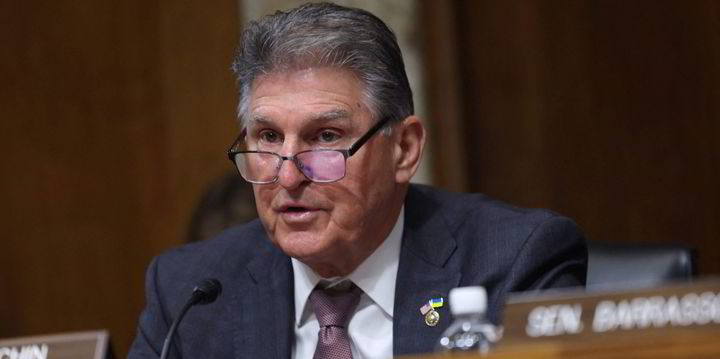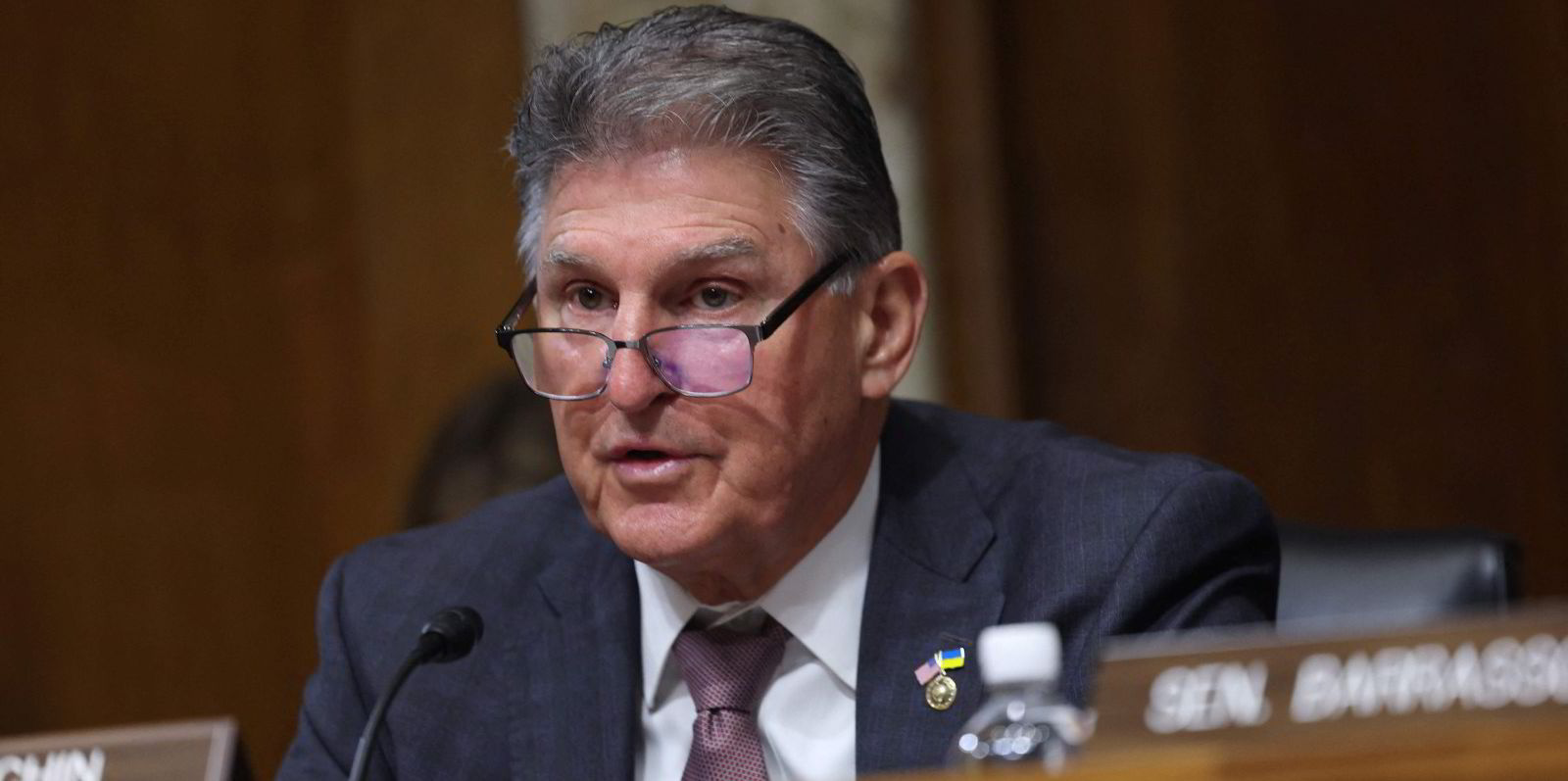US Senator Joe Manchin introduced a bill on Tuesday that calls for reforms of the permitting process for energy projects, marking a return to a pet cause for the conservative West Virginia Democrat.
The Building American Energy Security Act follows another permitting reform bill passed by the Republican-controlled House of Representatives in March.
Permitting reform has support from both parties, the competing bills have some important differences that could be difficult to reconcile.
Among other rule changes, Manchin’s bill would set a two-year limit on government environmental reviews for major projects and a one year for lower-impact projects.
Manchin initially introduced the text of the bill in December as an amendment to the National Defense Authorization Act.
Discussions about the need for energy project permitting reform has grown in recent months as the US scrambles to increase energy security and implement energy transition technologies.
Article continues below the advert
Projects that could proceed under President Joe Biden’s historic infrastructure funding now face arduous permitting processes, and both Republicans and Democrats are concerned that traditional oil and gas and renewable energy projects will take years to get federal approval.
Set maximum timelines for reviews through the National Environmental Policy Act to two years for major energy projects and one year for lower-impact projects.
Establish page limits to environmental documents.
Set a 150-day statute of limitation for court challenges of energy projects.
Randomly assign such cases to judges in federal circuit courts to remove potential accusations of bias.
Direct the president to designate a list of at least 25 high-priority energy infrastructure projects to prioritise permitting for, which will include a balanced list of project types, including critical minerals, nuclear, hydrogen, fossil fuels, electric transmission, renewables, and carbon capture.
Clarify the Federal Energy Regulatory Commission’s (FERC) jurisdiction over interstate hydrogen pipeline, storage, import, and export facilities.
Streamline FERC’s authority to approve electric transmission lines of national interest.
Require FERC to ensure electric transmission project costs are allocated to customers that receive proven electricity benefits.
Complete the last 20 miles of the Mountain Valley Pipeline, which would be able to transport 2 billion cubic feet per day of natural gas from West Virginia to southern Virginia.
Manchin said nearly every energy project with federal review requires an Environmental Impact Statement, which takes an average of 4.8 years. About 25% of these projects then go through litigation processes.
He added that mines for critical minerals often take five to 10 years to obtain permits.
Offshore wind projects are ramping up, with seven lease auctions to be completed by 2025, but permitting delays can mean offshore wind projects will take five to seven years after a lease is granted to be installed.
As carbon capture and sequestration projects gather momentum, supporters are calling for the Environmental Protection Agency to expedite state applications for regulatory authority over Class VI wells — permanent injection wells for CO2 — which in some cases can take several years to get permits.
ConocoPhillips chief executive Ryan Lance said earlier this year that certain clean energy projects such as hydrogen are “procedurally impossible” due to permitting issues, even though the Inflation Reduction Act made them economically and technically more feasible.
Despite call for permitting reform from all sides of the energy sector, Republicans shut down Manchin’s permitting reform efforts last year.
Republican Senator Lisa Murkowski from Alaska said Republicans rejected these efforts because of their objections to the Inflation Reduction Act, which narrowly passed the Senate thanks to Manchin’s support.
Responding to the new bill, American Petroleum Institute spokesman Ben Marter said: “Modernising our permitting process will speed up approvals, create American jobs, and enable the faster movement of energy where it is needed most. We will continue to work with policymakers to modernizs our infrastructure for the benefit of all Americans.”
When Republicans won back the majority in Congress early this year, Manchin said he spoke with new Speaker Kevin McCarthy, both agreeing that permitting reform was a priority.
The bill approved by the Republican-led House in March, the Lower Energy Costs Act, focuses on allowing oil and gas leasing on federal lands and rolling back restrictions on natural gas imports and exports.
The bill received support from several oil and gas organisations but has little chance of making it through the Senate.
Reuters said Tuesday that the White House would back the new permitting reform bill.
“We supported it last year, we’ll support it this year,” said Biden adviser, according to the news agency.
“It’s a high priority for us to try to find a path forward on bipartisan, permanent reform,” Podesta said.

